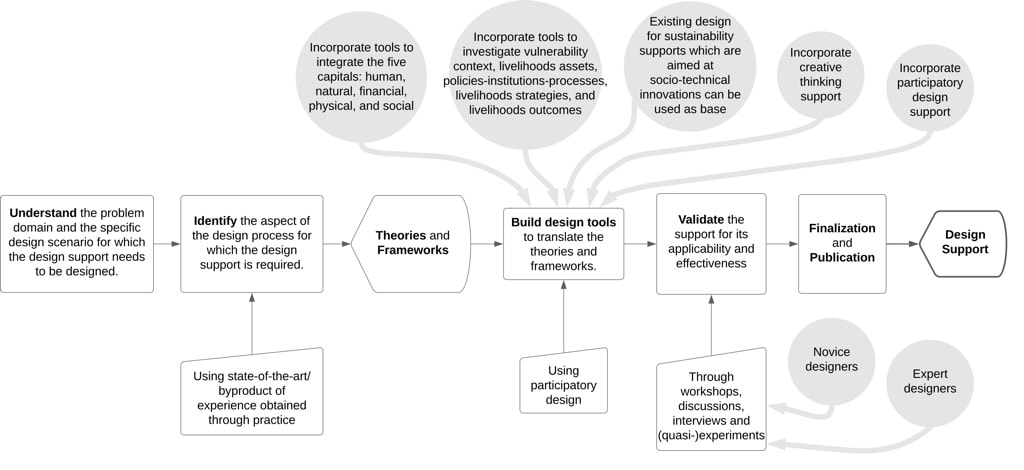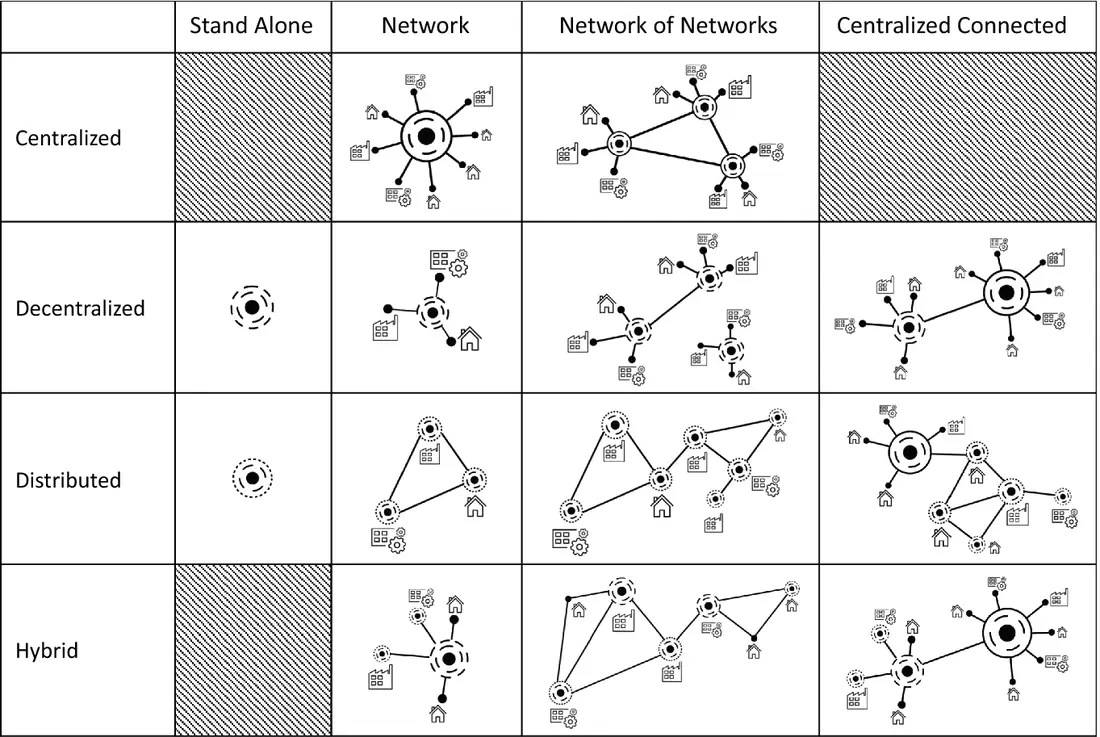|
In this blog post, we will explore the concept of 'designerly ways' for sustainable livelihoods. The sustainable livelihoods approach (SLA) is centered around developing people by building their strengths and bringing relevant aspects of their lives and livelihoods into the development process. The SL framework consists of five core components: vulnerability context, livelihood assets, policies-institutions-processes, livelihood strategies, and livelihood outcomes. Similarly, the designerly approach requires cross-disciplinary and transdisciplinary knowledge and expertise to deal with complex, interrelated issues. Both SLA and designerly approaches aim to help stakeholders address and realize their constraints and opportunities by bringing together various relevant stakeholders. SLA stresses the need to bridge the gap between macro-level policy and institutions and the influence of the same on livelihood options of grassroots-level communities and individuals. In contrast, designerly ways require effective communication with stakeholders to reach a sustainable solution on all three dimensions (social, economic and environment), contextually appropriate, and with mutually agreed trade-offs. The 'designerly ways' concept highlights the significance of understanding the relationship between decisions and activities, analyzing the inherent potential of the people involved, and eliminating the constraints in the path of realization of those potentials. By incorporating this approach into sustainable livelihoods, we can create an integrated approach that ensures sustainable livelihoods for all stakeholders.
To read some research cases from our lab, visit: Banerjee S., Upadhyay P., Punekar R.M. (2022). ‘‘Designerly Ways’ for Sustainable Livelihoods’. In: Melles G.B. (eds) Designing Social Innovation for Sustainable Livelihoods. Design Science and Innovation. Springer, Singapore. https://doi.org/10.1007/978-981-16-8452-4_4.
0 Comments
The current economic paradigm, characterized by a continuous pursuit of economic efficiency in resource exploitation, is unsustainable and unfair. There is an urgent need to reframe the economy towards a new paradigm that promotes human well-being in harmony with nature. Distributed Economies (DE) is a promising model for locally-based sustainability. DE consists of small-scale value-adding units (e.g. manufacturing, energy generation, food production, water management, software development, knowledge generation) where the control of core activities is shifted towards the user/client.
Centralization is a key barrier to sustainability and resilience. The mass production of goods and services in centralized systems is based on ideals of efficiency and cost savings, but it rarely considers the social and environmental costs of manufacturing. Overcapacity is pushed onto consumers through aggressive marketing and planned obsolescence strategies, and nature is seen only as a provider of resources to be exploited. This centralization also creates barriers to repair and maintain products, affecting actors who contribute to a local economy and ensure circular material flows. DE addresses these issues by promoting cooperative work in the production of goods and services, solidarity finance, fair trade, and solidarity consumption. Participants share the economic, political, and cultural results obtained from value creation. The principle of Distributed Economies calls for an analysis of what products and services in a specific region deliver social and environmental harms by virtue of being produced in large-scale, centralized modes. The objective is to become sensitive to and work to change systems that have become an “ever-faster once-through flow of materials from depletion to pollution”. In conclusion, DE is a promising model for local sustainability. It promotes cooperative work and shared value creation while reducing environmental impact and resource depletion. DE can address the issues caused by centralization and promote a sustainable economic paradigm that values human well-being in harmony with nature. For more read - dos Santos, A., Vezzoli, C., Garcia Parra, B., Molina Mata, S., Banerjee, S., Kohtala, C., . . . Xia, N. (2021). Distributed Economies. In C. Vezzoli, B. Garcia Parra, & C. Kohtala (Eds.), Designing Sustainability for All: The Design of Sustainable Product-Service Systems Applied to Distributed Economies (pp. 23-50). Cham: Springer International Publishing. |
Archives
March 2023
Categories
All
Archives
March 2023
|



 RSS Feed
RSS Feed
